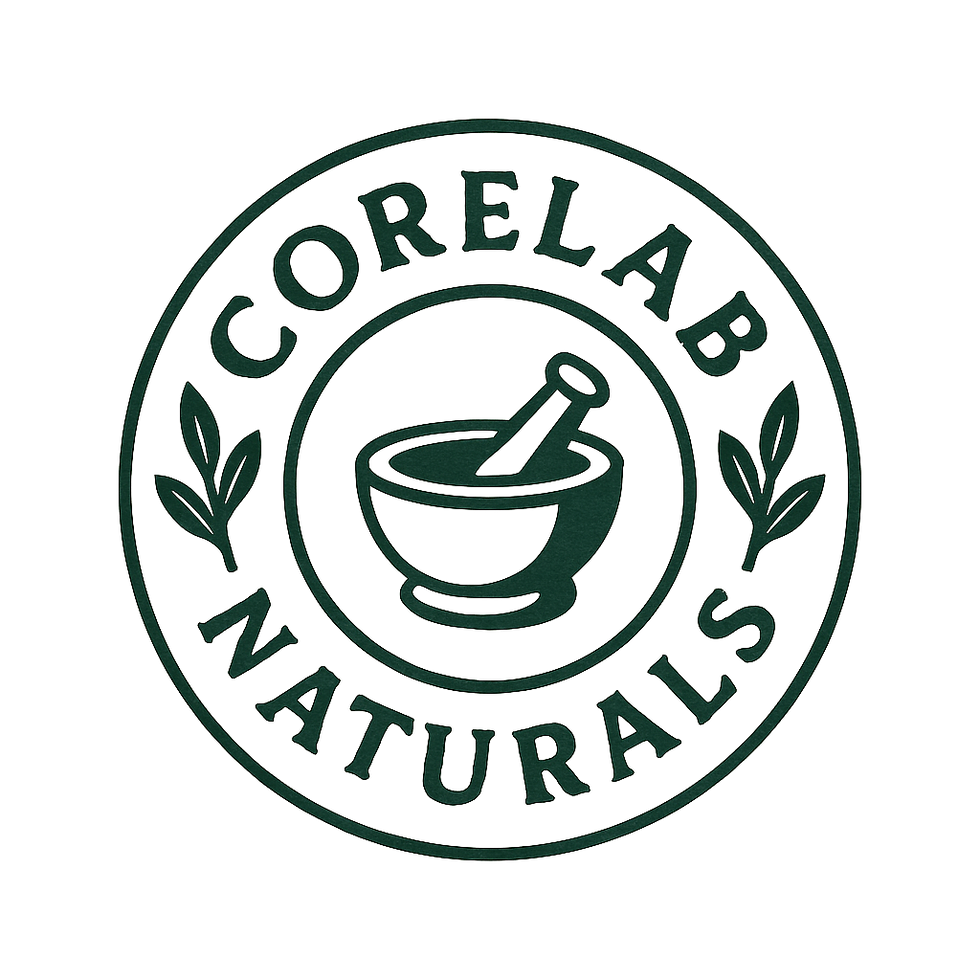Embracing Herbalism: The Power of Natural Remedies Free from Toxins and Chemicals
- alex stretton
- Nov 17, 2025
- 3 min read
Natural remedies have gained renewed attention as more people seek alternatives to pharmaceuticals and processed products. Many want to avoid toxins, chemicals, and ultra-processed foods, turning instead to pure organic ingredients and all-natural products. This shift reflects a growing awareness that nature offers powerful solutions for health and wellness without the side effects often linked to synthetic substances.
Herbalism, the practice of using plants for healing, taps into centuries of traditional knowledge. It focuses on harnessing the benefits of herbs, roots, flowers, and other natural elements to support the body’s balance and vitality. This post explores why embracing herbalism matters today, how to incorporate natural remedies safely, and examples of effective plants you can use at home.

Why Choose Herbalism Over Pharmaceuticals?
Pharmaceutical drugs often contain synthetic chemicals designed to target specific symptoms or diseases. While they can be effective, they sometimes come with unwanted side effects or long-term risks. Many medications also rely on ultra-processed ingredients that may burden the body with toxins.
Herbalism offers a gentler approach. Natural remedies use whole plants or extracts that contain a complex mix of compounds working together. This synergy can support the body’s natural healing processes rather than just masking symptoms. Choosing pure organic ingredients ensures you avoid pesticides, additives, and artificial substances that may interfere with health.
People who switch to herbal remedies often report fewer side effects and a stronger sense of well-being. Herbalism also encourages a holistic view of health, considering lifestyle, diet, and emotional balance alongside physical symptoms.
How to Start Using Natural Remedies Safely
Moving away from pharmaceuticals does not mean abandoning caution. Like any form of medicine, herbal remedies require knowledge and respect for their power. Here are practical steps to begin:
Research trusted sources: Look for books, courses, or websites run by qualified herbalists or naturopaths. Avoid unverified claims or miracle cures.
Choose organic herbs: Always select herbs grown without pesticides or chemicals. Organic products preserve the plant’s natural qualities.
Start with simple remedies: Common herbs like chamomile, peppermint, ginger, and lavender are gentle and widely studied.
Consult healthcare providers: If you have chronic conditions or take medications, check with a professional before adding herbs to your routine.
Prepare remedies properly: Learn how to make teas, tinctures, salves, or infusions to maximize benefits and avoid contamination.
Observe your body: Monitor how you feel and adjust doses or discontinue use if you notice adverse reactions.
Examples of Powerful Natural Remedies
Many herbs have stood the test of time for their healing properties. Here are a few examples that illustrate the potential of herbalism:
Turmeric: Known for its anti-inflammatory effects, turmeric contains curcumin, which research suggests may help with joint pain and digestive health.
Echinacea: Often used to support the immune system during colds and flu, echinacea can reduce the duration and severity of symptoms.
Lavender: This fragrant flower promotes relaxation and can ease anxiety, insomnia, and headaches when used as an essential oil or tea.
Ginger: A natural anti-nausea agent, ginger also supports digestion and reduces inflammation.
Calendula: Used topically, calendula helps heal wounds, soothe skin irritations, and reduce inflammation.
These examples show how natural products can address common health concerns without relying on synthetic chemicals.
Benefits Beyond Health
Herbalism also supports environmental sustainability. Organic farming practices protect soil health, conserve water, and reduce pollution. Choosing natural remedies encourages biodiversity and helps preserve traditional knowledge about plants.
Moreover, preparing your own remedies fosters a deeper connection with nature and your own body. It invites mindfulness and self-care, which contribute to overall wellness.
Final Thoughts on Embracing Herbalism
Natural remedies and herbalism offer a path to health that avoids toxins, chemicals, and ultra-processed foods. By choosing pure organic ingredients and all-natural products, you support your body’s natural healing abilities and reduce exposure to harmful substances.





Comments